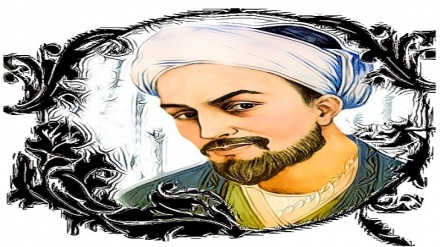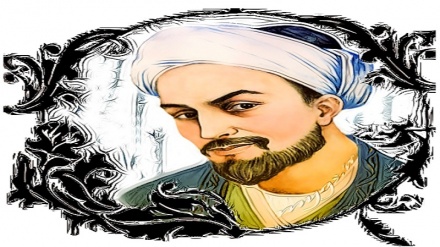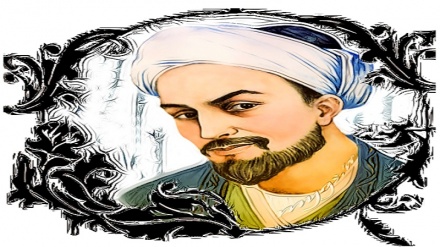Iranian notables, sources of global honor (95)
Welcome to the 95th weekly episode of the series Iranian Notables, Sources of Global Honor. Amir Ali Shirnavai; the prominent Iranian thinker, poet, author, and politician of 9th Century AH, was a global figure, who rendered valuable services in a number of domains and left behind significant works. Today, we become familiar with this renowned Iranian figure.
The era of the rule of Timurid Dynasty was one the most glorious periods of time in Iran. In this phase in time, thanks to the relative calm established across the borders and capitals, which was the outcome of the détente policies of Timurid kings, a huge cultural growth and development took shape. Given the significant support of Timurid kings for culture and art, a brilliant era in the history of Iran’s culture and civilization emerged.
The Timurid kings, following the death of Founder of Timurid Dynasty, Amir Timur Gorkani, made use of the wealth which was accumulated as the result of Timurid kings’ conquests, for fully developing the cultural and artistic aspects of their royal courts. As the result of the focus of Timurid kings on culture and arts, many artists rose into prominence in this era.
One of the characteristic features of this era was the presence of cultural elites, who upon coming to power, took strides for cultural growth, promoting the royals courts and even leaving an impact on the next phases in time, with their valuable works and activities. One of the most prominent cultural figures of this era is Amir Ali Shirnavai, the knowledgeable and art-loving vizier of Sultan Hussein Baiqara, who left a huge impact on the cultural and artistic current of his era, while also immensely influencing the political and social realms throughout the waning years of the Timurid era.
Amir Ali Shirnavai was born in the city of Herat on February 9, 1441, into a virtuous and respected family. It is said that his father was one of the acclaimed figures of his era.
Meetings of Ulema and renowned figures were usually convened in his paternal house and Amir got acquainted with Ulema as of his childhood. This scientific environment highly contributed to his growth and progress. In his childhood, Amir played games and attended school with the children of the royal court of Omar Sheikh Gorkan, including Hussein Baiqara, whom Amir went to school with.
Upon the death of Timurid King, Shahrokh, the land of Khorasan descended into chaos and Amir’s family were forced to leave their homes and hearths in Herat. Throughout this journey, Amir met the historian, Sharaf Ed-Din Ali Yazdi.
In the year 853 AH, upon ascension to the throne in Herat by Abul-Qasem Baber, Amir’s family returned to this city. However, this settlement did not last long. Abul-Qasem Baber passed away, while Amir was 17 years old. Thereafter, a power struggle emerged between Abu Saeed and Hussein Baiqara, which led to the ultimate victory of Abu Saeed. The rule of Abu Saeed over Herat left a huge negative impact on the life of Amir’s family, given that they had supported Hussein Baiqara in his power struggle with Abu Saeed. In this juncture in time, Amir had no choice other than to immigrate to Mashhad and Samarqand, which marked a tough phase in his life, in which he was mired in poverty and had fallen ill.
In the city of Mashhad, Amir met and conferred with poets and Ulema such as Sheikh Kamal, and Mohammad Khazr Shah, holding discussions with them. After residing in Mashhad for a while, he decided to return to his hometown, Herat. For a while in Herat, he entered Sultan Abu Saeed’s Court. However, after a short period, he was disheartened by the circumstances in Herat, and headed toward Samarqand.
Throughout the years in which he took up residence in Samarqand, Amir Ali Shir completed his studies. Throughout these difficult years, he won the support of a leading figure in Samarqand, Darvish Mohammad Tarkhan, and the ruler of this city, Ahmad Haaji Baig. The start of his stellar political life put an end to his years of hardship.
In the year 873 AH, upon the death of Abu Saeed, Sultan Hussein Baiqara ascended the throne. Given his pledge to Amir Alishir, he invited Amir from Samarqand to Herat.
Thanks to the prudent consultations of Amir with Sutlan Hussein Baiqara, the latter’s rule in Herat were reinforced, and the people of that region were liberated from the yoke of injustices, upon the just rule of Sultan Hussein Baiqara throughout that region.
Amir Alishir was a prudent and merited vizier, who appropriately administered Herat. He rendered innumerable services, and largely reformed the social and economic affairs, following his appointment to this post. He always made use of his position of power to administer justice and to fulfill people’s rights. He improved the standard of life of masses of people and reorganized the economy.
He personally monitored the collection of taxes, so that the taxmen would not impose any injustices upon people. Upon construction of creeks, he optimized the agricultural sector, as part of his efforts to improve people’s life standards.
Meanwhile, the resentments of rivals, enemies, and courtiers, who saw Amir’s position in power as a hurdle against their excessive demands and injustices, finally forced Amir into resigning from his post.
MR/SS


